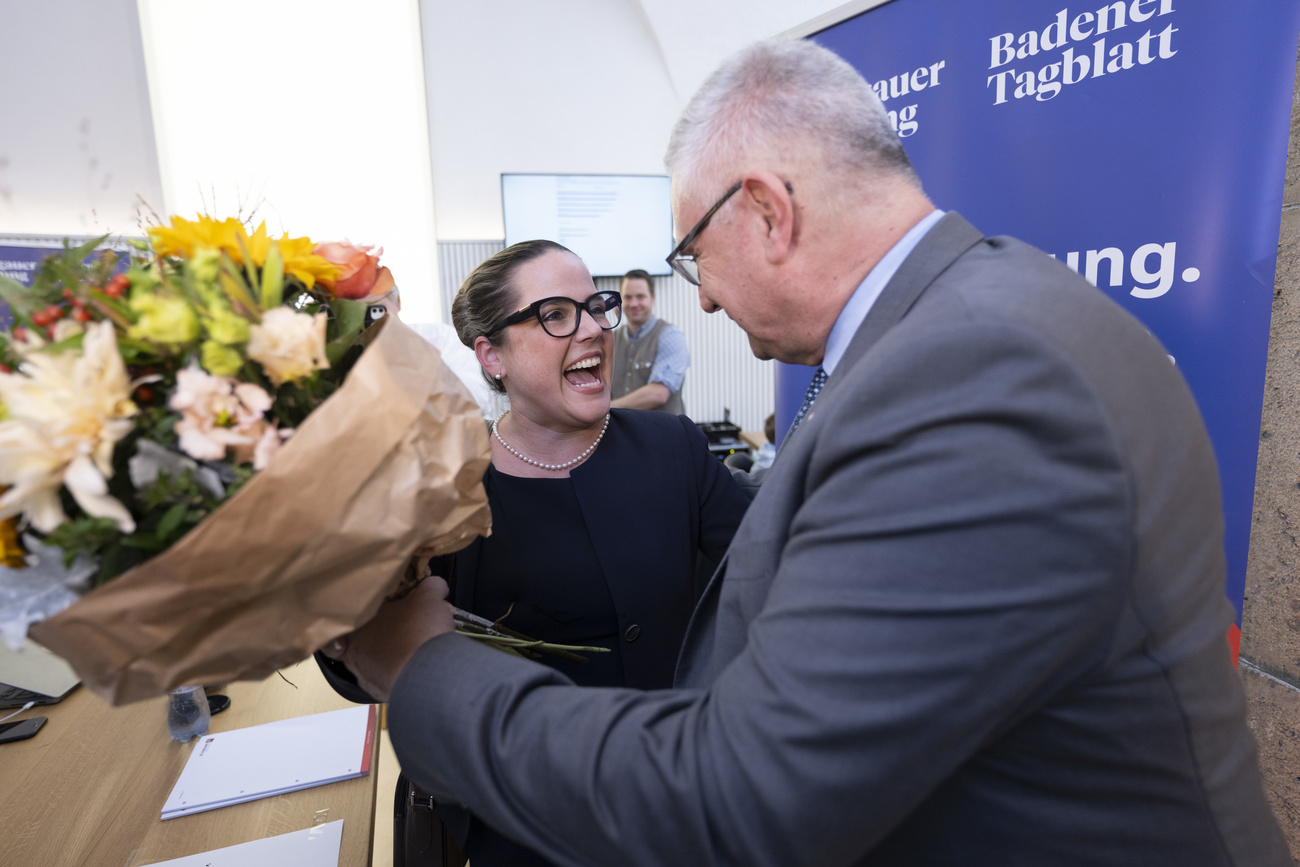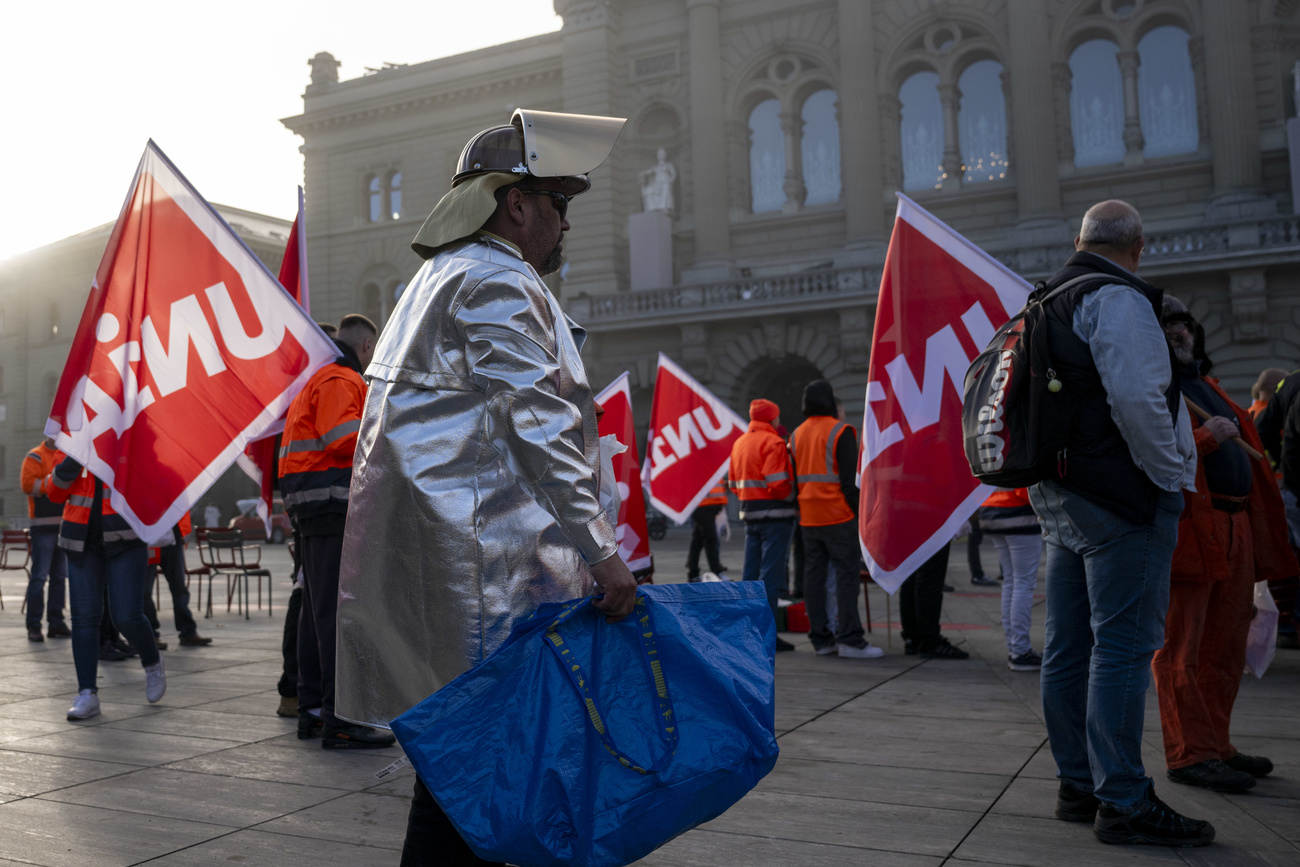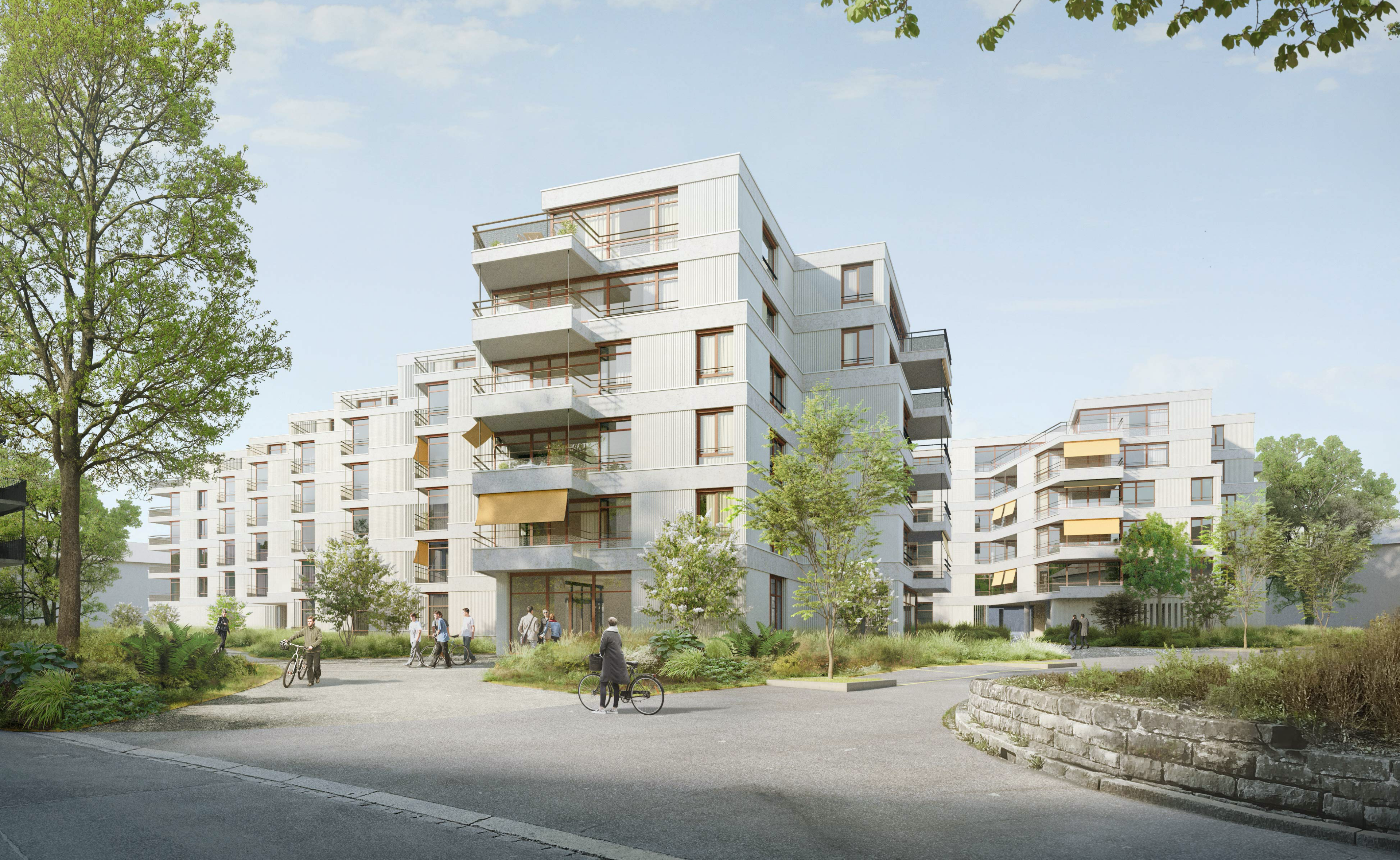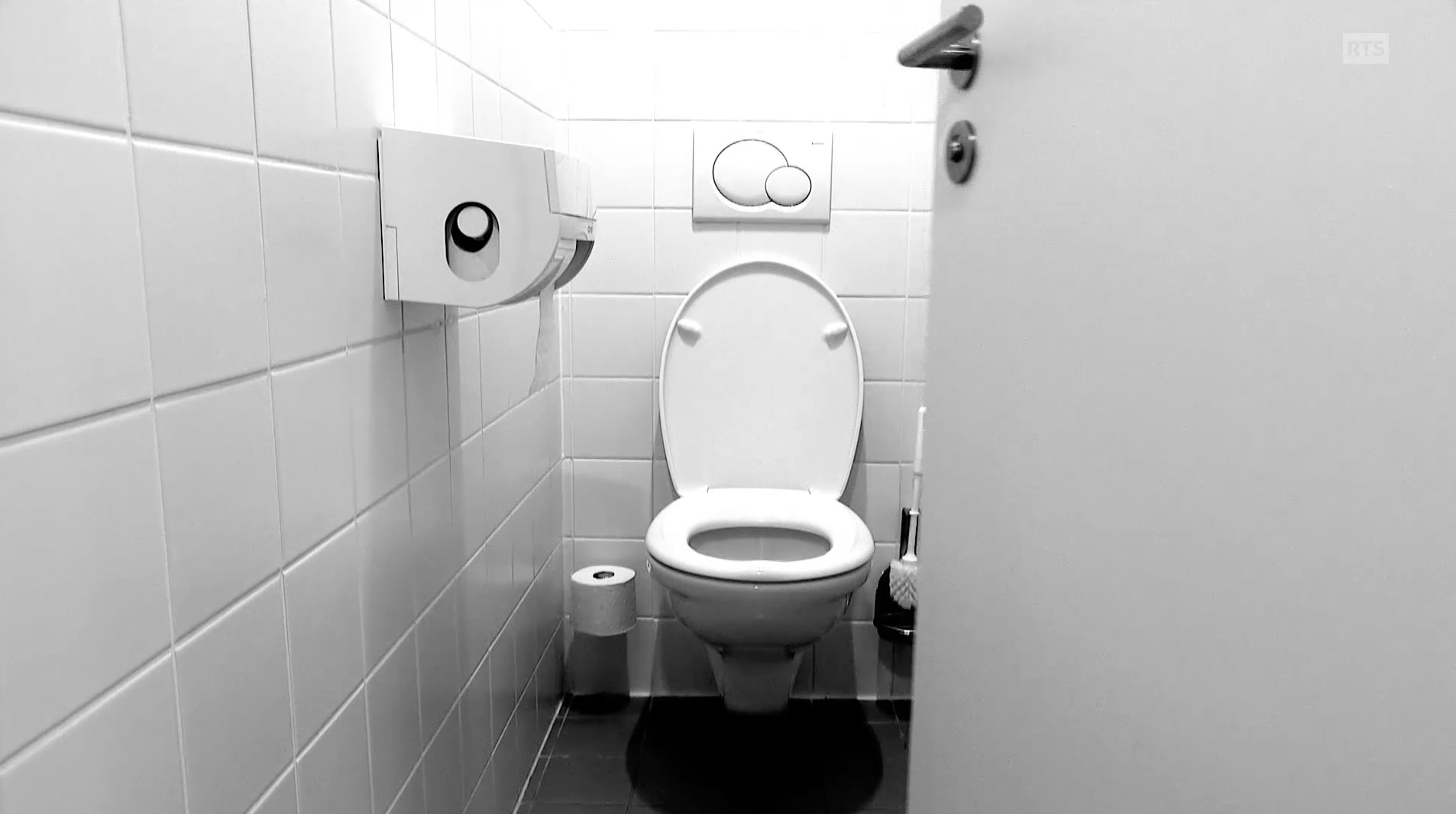
Switzerland Today
Dear Swiss Abroad,
There is a huge crisis at Swiss steelworks. Today the share price of Swiss Steel plummeted. The workers at the Gerlafingen steelworks gathered outside parliament in Bern to call for help. Economics Minister Guy Parmelin does not yet consider the Swiss steel industry to be systemically relevant.
But first a snapshot of Swiss politics: the right-wing Swiss People’s Party is making significant gains.

The cantons of Aargau and Basel elected their governments at the weekend. This is a chance to take a look at the form of the Swiss parties.
Since the federal elections in October 2023, seven cantons have reappointed their parliaments. A clear picture is now emerging: the People’s Party is making gains. This is mainly at the expense of the left-wing Green Party.
A woman is now back in government in canton Aargau, only the third in the canton’s history: Martina Bircher (pictured), 40, known as a hardliner on asylum and social policy, but also as co-president of the parliamentary group of the Swiss Abroad.
“The world has changed since then. People’s Party issues such as asylum and immigration are gaining traction again, but climate change all the less so,” according to the Tages-Anzeiger newspaper.
The Tages-Anzeiger analysed all seven cantons that have gone to the polls in the past year. The People’s Party gained 3.2% of voters, the Greens lost 1.5%, the centre-right Radical-Liberal Party lost 0.8% and the centrist Liberal Green Party 0.5%. The Centre Party and the left-wing Social Democratic Party have remained virtually unchanged since the federal elections.
- The analysis External linkof the Tages-Anzeiger (German)

Swiss steel companies are struggling with immense problems. Today, workers demonstrated on Parliament Square.
One reason for the crisis among Swiss steelmakers is the higher electricity prices in Switzerland, but a bigger reason is the crisis in the European automotive industry, mainly in Germany: less steel is needed.
Swiss Steel is on the brink of collapse. The Lucerne-based company is now in the red wherever it is still active. The plants are running far below capacity. A large proportion of the workforce is on short-time working.
Investors also no longer believe that Swiss Steel has a future. This morning, the share price plummeted another 20% after the SonntagsZeitung newspaper reported that the company could soon run out of cash. “If things continue like this, it is foreseeable that the steelmaker will no longer fulfil the banks’ credit conditions in the spring,” the SonntagsZeitung wrote.
The second major steel producer, the Gerlafingen steelworks, is also on the brink of collapse. A further 120 employees will have to leave after 60 jobs were cut in the spring.
Employees demonstrated today on Parliament Square (pictured) in defence of the Gerlafingen steelworks – something that only happens every few years in Switzerland. The government has so far rejected state support, for example for electricity prices. The Senate is now having the responsible committee examine immediate measures.
- Research by the SonntagsZeitung External linkon Swiss Steel. (German, paywall)

Rents in Switzerland’s major cities are becoming increasingly expensive, and affordable rental flats are rare. Now a case from Zurich is making headlines.
Swiss bank UBS owns the Heuried housing estate in Zurich with 100 rental flats. It was completely renovated 20 years ago: new balconies, new bathrooms, new kitchens. Four years ago, new heating systems and solar panels were installed, as reported by Blick.
But now UBS is planning to demolish the entire housing estate. The bank’s property fund is planning a new building with 149 flats (picture above). All tenants have been given notice. The bank argues that demolition is more environmentally friendly than renovation in this case. And more flats on the same site would also help to alleviate the housing shortage.
In the Neue Zürcher Zeitung (NZZ), economic geographer Christian Hilber places the Swiss rental market in an international comparison. “Flats in prime locations are scarce and cannot be increased,” he says, but rents in Zurich are still favourable compared to London, because “tenants only pay the current market rent when they rent a new flat”.
Hilber therefore sees an “insider-outsider” problem: those who have a flat benefit from largely frozen rents. But anyone looking for one is exposed to the market. “The problem of queues for flat viewings is not as serious in Switzerland as it is in foreign cities,” he says.
- The interview External linkwith the housing market economist in the NZZ. (German, paywall)
- The Blick reportExternal link on the demolition of the Zurich housing estate. (German, paywall)

Workers who have to clock off when they go to the loo – this practice by the watch industry caused outrage. Now it is coming under pressure.
It was an investigation by Swiss public broadcaster, RTS, that brought to light the controversial practice of some watch companies in French-speaking Switzerland: watch workers are not allowed to count going to the loo as working time.
“We started from the principle that physiological needs cannot be deducted from working time because they are independent of the person’s will,” says the head of the Neuchâtel Labour Office. Her office discovered the irregularity by chance as part of a Covid control in 2021.
However, the cantonal court of Neuchâtel has since declared the practice to be legal. Companies are therefore still permitted to do so.
That said, the court found two things when judging the case: first, the companies’ regulation has the potential to discriminate against women, as they may need to visit the loo more frequently due to their monthly cycle. Second, there is a legal vacuum, i.e. simply no law that bindingly regulates working hours and urgent human needs.
This realisation has now prompted parliamentarian Céline Vara to take action. She wants to take the issue to the Legal Affairs Committee of the Senate. “If there really is a legal loophole, we need to pass laws and not wait years for this issue to be clarified,” she told RTS.
- The RTS report External link(French)

Picture of the day
This is a living and beloved Swiss tradition. Älperchilbi on Sunday in Stans: participants parade across the village square in traditional Nidwalden costumes. The motto was “säiä – pflägä – ärntä” (sow, cultivate and harvest). The highlight is the Alpine cattle drive, when the dairy workers bring the cows back down to the valley adorned with colourful accessories.
Translated from German by DeepL/ts

In compliance with the JTI standards
More: SWI swissinfo.ch certified by the Journalism Trust Initiative








